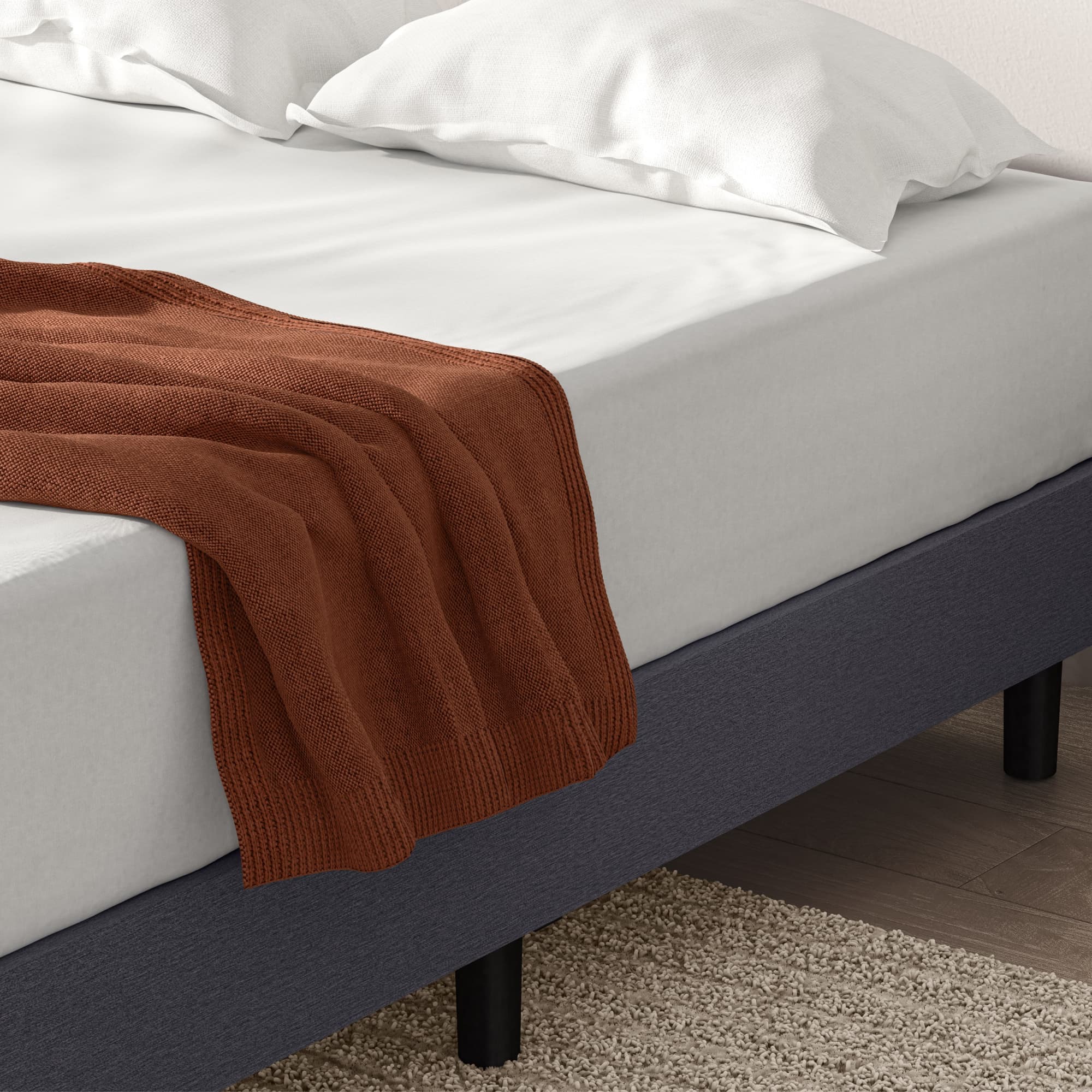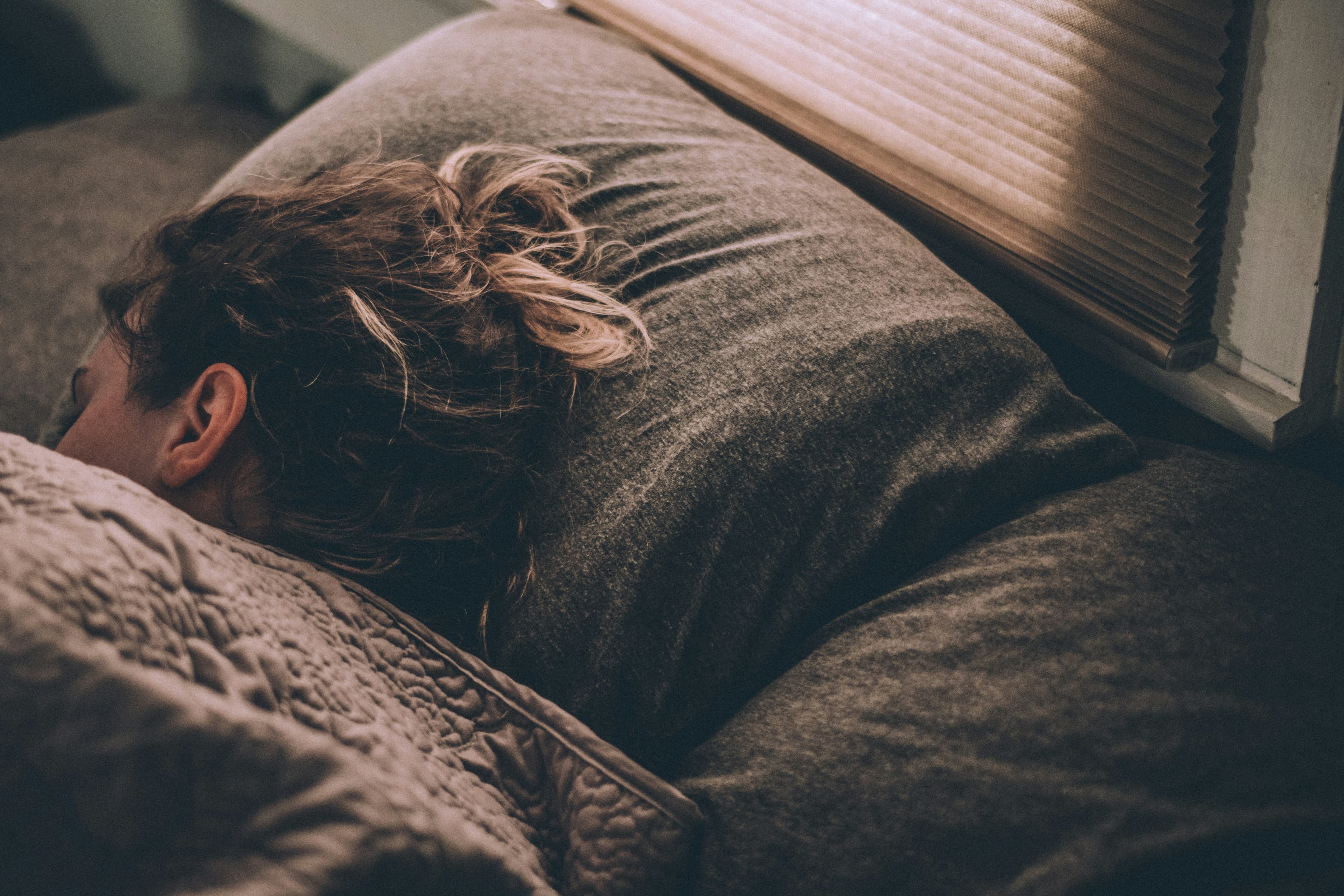If you're a solo sleeper, chances are you can't imagine getting a good night's sleep next to another human being---even if that person is your partner. If you're already familiar with the benefits of sleeping next to someone, this list will reaffirm what you already know.
Sleeping next to your partner has many mental and physical health benefits not to mention the many ways it can also improve your relationship. Scientists have been studying what happens when couples spend the night in the same bed. Here's what those researchers found.
Better Sleep Quality
Can you get quality sleep when sleeping in a bed together? Will you have trouble falling asleep, be able to sleep soundly, or get enough sleep? Research shows many are skeptical as we discuss in our recommended read: Married Couples Separate Beds | Leesa.
You may not realize that when you sleep on a mattress with someone on a nightly basis, your bodies and sleep cycles sync up. You find a balance, rhythm, and harmony you're not likely to experience if you only share a bed occasionally.
This syncing is a natural biological occurrence that scientists can objectively measure.
A 2020 study published in Frontiers in Psychiatry demonstrated this. They compared couples who sleep together regularly to those who don't and found the couples who slept in the same bed experienced:
- 10% greater total duration of REM sleep
- Less REM sleep fragmentation (waking up a lot at night, tossing and turning)
- Longer REM sleep sessions
- Aligned sleep architectures (the physical way people share a bed)
REM (rapid eye movement) is a critical sleep stage and is most associated with vivid dreaming. Sleep researchers believe it is vital for mood, memory, emotional health, and problem-solving. This leads to more restorative sleep.
Fall Asleep Faster
Couples also experience a harmonizing of the sleep wake cycle if they go to bed simultaneously. A consistent sleep wake cycle is vital for overall health and essential for getting a good night's rest.
Another study demonstrated that women in stable relationships who share a bed fell asleep faster and awoke less frequently than single women.
They have fewer reported sleep issues in a shared sleeping environment.
Lowers Your Blood Pressure
Sleeping next to a partner also increases the production of oxytocin and estrogen in women and oxytocin in men. These two hormones promote relaxation, support an ideal body temperature, and help people get deeper, more restful sleep.
Oxytocin is sometimes called the "Love Hormone". This chemical compound is what prompts feelings of being "in love" and other "sensations" sexually active partners will recognize.
But oxytocin isn't the only chemical compound produced.
When the body releases oxytocin, it also causes a chain reaction. Your brain releases dopamine and serotonin in the body. Each is also known as the "happy chemical".
This further explains why oxytocin, in particular, is associated with feelings of safety, pleasure, and comfort, and sleeping better among many benefits.
Sleeping in a couple's bed can directly and quickly lower blood pressure as a result. Those with the highest levels of oxytocin also have the lowest blood pressure.
Reduced Anxiety
Better quality sleep plus the additional release of stress-reducing hormones also lowers anxiety levels in both partners. We won't go as far as to say a couple's mattress can treat anxiety, but what we can say here is that sharing a couple's mattress can directly impact hormones that ease anxious feelings and promote overall psychiatric well being.
Anxiety is the enemy of good quality sleep. Reducing it can help you get a deeper sleep.
Improves Immune System
When people are stressed and anxious, they produce a lot of the stress hormone, Cortisol. Cortisol diverts resources from the immune system to the muscles because the body thinks you're in a physical fight or flight situation.
High cortisol levels are also what causes you to toss and turn, feel stuck in your own head and overthink things when you're stressed out about something. It can contribute significantly to a sleep disorder. In the longer term, poorly managed stress can hinder the ability of the immune system to do its job.
Higher oxytocin and estrogen levels directly counteract cortisol production when the brain starts overreacting to stress. This allows the body to allocate resources again to protect you from getting sick.
In fact, research found couples sleeping in the same bed have more antibodies needed to identify and respond effectively to viruses, bacteria, parasites, and other threats without becoming overwhelmed. As a result, you're less likely to catch or have symptoms from common colds and flus even when exposed because your body can fight them off quickly.
An overwhelmed immune system increases body inflammation. Alternatively, healthy immunity will reduce inflammation levels to just what is needed to fight an infection.
Slows Down Aging / More Restorative Sleep
Physical contact promotes sleep health. And better sleep directly impacts how the body ages. Sleep is the time when your body relaxes so it can repair or replace damaged cells and eliminate cellular waste.
Furthermore, unbridled stress ages us faster, so anything that lowers stress can slow the effects of aging both in how we look and in how we think and function.
According to Neuropsychologist David Weeks, who studied the impact of couple sleeping patterns on aging, couple sleeping can make a person look and feel around 7 years younger than their biological age.
And even if you haven't been sharing a bed with your partner up to this point, know that the body is resilient and restorative. So starting this healthy habit now will allow you to experience the benefits of sleeping with a partner over time.
Improves Relationships
All of the above can improve your relationship. You feel more in-tune with each other and appreciate the value of being close to one another and cuddling. It’s nice to fall asleep and wake up together.
You're also feeling that love hormone oxytocin rises, which can prompt feelings that impact other physical aspects of your relationship.
Women have also reported more positive interactions and fewer negative interactions after sleeping in a bed with their partner.
Makes You Happier
All kinds of relationships and health benefits from sharing a bed can make you happier overall.
Feeling less stressed and more bonded to your partner naturally increases happiness and relationship satisfaction. In fact, all the benefits of sleeping next to your partner listed above can contribute to feelings of physical closeness with your partner and contentedness with life.
You may also have fewer negative interactions with others because your stress levels are lower and you're getting better sleep.
Conclusion
Sharing a bed has many physical, mental, emotional, and relationship benefits. It can reduce stress, improve your mood, and promote healthy immunity. We encourage you to explore these benefits for yourself. If you’re wondering what mattress is best for couples, we have a few suggestions for you right here.
FAQs:
What size bed is good for a couple?
Generally, a Queen-sized bed is considered the perfect couple's bed. Although Full beds have the benefit of fitting in smaller spaces, if needed.
- 26.7% of couples prefer a King-sized mattress
- 11.7% a Full mattress
- 60.1% a Queen mattress
Is it true you sleep better next to someone you love?
Yes. numerous well-conducted studies have measured sleep quality using scientific instruments to confirm that couples who regularly share a bed do sleep better and have an overall better relationship in addition to many benefits to health and happiness.
Is sleeping with someone better than sleeping alone?
The short answer is, Yes. If you're new to sharing a bed, you may experience a learning curve for several nights. But couples who've experienced the benefits of sharing a bed will tell you that it's worth the momentary discomfort because your sleep will sync up, leading to the benefits of sleeping together.
Is sharing a bed healthy?
Yes. Science shows it can improve your immune function, reduce stress, and even slow the effects of aging. Unless your partner snores like a freight train or your sleep schedules are opposite, you could benefit from sharing a couple's mattress.
Sources:
https://www.frontiersin.org/articles/10.3389/fpsyt.2020.00583/full



